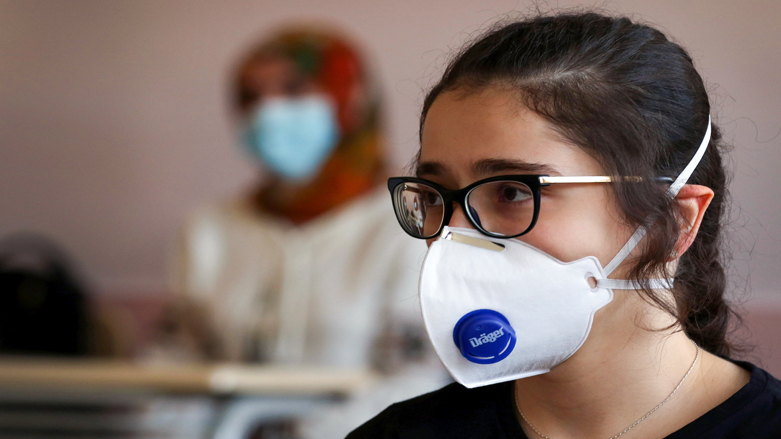Actual COVID-19 infections likely higher than official figures, Kurdistan Region’s health minister warns

ERBIL (Kurdistan 24) – The number of people infected with coronavirus in the Kurdistan Region is likely to be higher than the record numbers already recorded, the region’s health minister warned on Monday ahead of the Eid al-Adha holiday.
Health Minister Saman Barzinji expressed his concerns during a press conference on the spiking COVID-19 infection rate in the region, which recorded almost 2,000 new cases and 20 deaths in the previous 24 hours – the highest number of infections since the start of the pandemic.
“The actual infections are likely to be higher than these figures,” Barzinji warned, considering the number of people who may not display symptoms or are unable or unwilling to get tested.
The Kurdistan Region is allocating more hospital space to receive COVID-19 patients and will accelerate the oxygen supply across treatment centers in preparation for another wave of infections, he added.
“But this is not the solution. We need to take protective measures such as mask wearing and social distancing,” Barzinji said.
Rising COVID Infections Ahead of High Season, Eid Holiday
The rise in infections comes as the Kurdistan Region prepares for the four-day Islamic Eid al-Adha holiday this week. The holiday typically sees people share food and sweets and paying visits to each other’s homes.
It is also the time of year during which the region normally receives thousands of tourists, mainly from the hotter central and southern provinces of Iraq.
More than 30,000 Iraqi tourists have visited Erbil during the last three days, according to the latest figures from security checkpoints.
The high rate of interactions from the Eid holiday and tourist influx is likely to ramp up the infection rate further.
Barzinji on Monday urged people to avoid “unnecessary gatherings and activities.”
Health Workers at Risk
More than 4,000 health care workers in the Kurdistan Region have been infected with the coronavirus since the start of the pandemic, and 80 died with the virus, the health official said.
The surge in new infections is thought to be due in part to the Delta variant of coronavirus, which has been detected in Iraq and the Kurdish region.
Earlier Monday, the health ministry described the new rising infections as “catastrophic” and part of a new wave of the pandemic in Kurdistan.
Barzinji said there were sufficient test kits to detect the Delta variant, identified by the top global health watchdogs as “variant of concern” and thought to be the most infectious form of the virus.
Since the pandemic outbreak in March 2020, the Kurdistan Region has recorded over 20,000 COVID-19 infections, from which more than 4,500 people have died, according to official tally.
